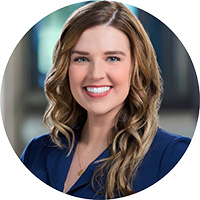A Voice for the Good: Little River Wetlands Project
3Rivers is proud to support so many of the non-profit organizations that are committed to making our community a better place to live, work, and play, and we want to help spread the word about the difference they're making in our region. We’ve teamed up with 97.3WMEE to bring you A Voice for the Good podcast to do just that! We’re temporarily bringing the podcast to you via these Q&A online articles, as we’re doing our part to social distance and keep our community safe.
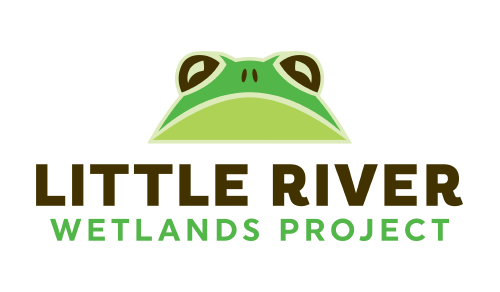
This article features Little River Wetlands Project (LRWP)—a local non-profit on a mission to “restore and protect wetlands in the historic watershed of the Little River, a major tributary of the Wabash River, and to provide educational opportunities that encourage good stewardship of wetlands and other natural ecosystems.” Little River Wetlands Project (LRWP) protects more than 1,300 acres of wetlands in the Little River watershed. In addition to Eagle Marsh, Arrowhead Marsh, Arrowhead Prairie and Buttonbush Bottoms, LRWP also co-owns Little River Landing with ACRES Land Trust.
We talked with Nicole Funk-Evard, LRWP’s Community Engagement Manager, to learn more about this local non-profit—its history, upcoming projects and events, and ways our community can support their work.
How did LRWP come to be? What’s the history/story behind how the organization initially got started?
We are a nonprofit land trust founded in 1990 with the goal of restoring and preserving wetlands in the watershed of the Little River, a headwater tributary of the Wabash River. We truly started as a project!
LRWP started as a partnership with members from ACRES Land Trust, Fox Island Alliance, Fort Wayne Chapter of the Izaak Walton League, and Stockbridge Audubon Society. All partners were concerned that over 85% of Indiana’s wetlands have been destroyed. This is a community restoration project to bring back some of these lost wetlands. Since wetlands are complicated, our partner knew that wetland education had to be a component of our mission.
LRWP has served over 100,000 participants since 2006 with free educational programs about wetlands, restoration, and all the species that depend on wetlands.
What is the official mission of LRWP, and how is it currently being put into play?
Our mission is to restore and protect wetlands in the historic watershed of the Little River, a major tributary of the Wabash River, and to provide educational opportunities that encourage good stewardship of wetlands and other natural ecosystems. LRWP project area is a once 25,000-acre wetland that settlers called the Great Marsh. This area stretches along the south side of US 24 from Fort Wayne to Huntington.
Our focus is to work with landowners to restore portions of their wet farm fields back into wetlands. LRWP currently protects 1,304 acres of natural and restored wetland habitats and has encouraged an additional 800 acres of privately owned restoration projects. We have 5 nature preserves that are open to the public with over 15 miles of hiking trails.
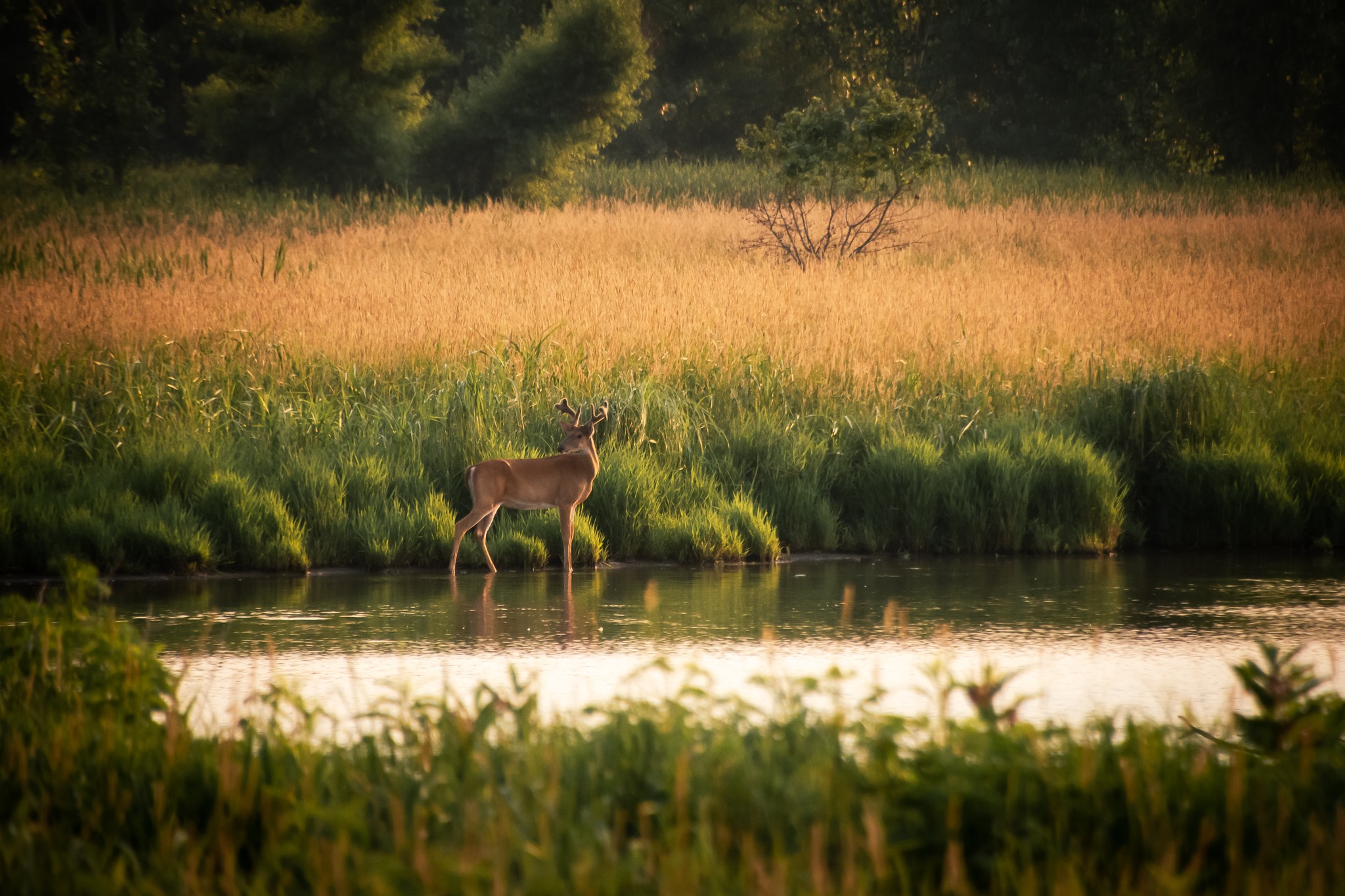
LRWP has a robust education program where we currently provide free hikes through our preserves for adults and children, we partner with surrounding schools and groups to provide free educational programming, continuously work
to remove invasive plant species from our preserves with our stewardship team and generous volunteers.
Pre-pandemic, LRWP served about 10,000 people every year through our educational programs and we hope to continue to serve this many each year as the pandemic subsides.
LRWP hosts weekly hikes, monthly senior programs, monthly public hikes, monthly pre-school hikes, stewardship activities, and major community events. To stay up to date on all of our hikes, programs, and events, visit our website's events page or sign up to receive our monthly newsletter.
How do you see the mission and vision of LRWP evolving into the future? Where do you see the organization a year from now, or even five years from now?
LRWP has developed a great model for gathering community support to offer free wetland programs to thousands of students and adults of all ages and abilities.
In 2018, we launched our Seed to Marsh program that directly links our wetland restoration activities with our free education programs. In this program, participants of all ages and abilities assist with the gathering, cleaning, sowing, and planting of native plant species. Each year, we grow thousands of plants that can be planted in our restorations or given to community members and partners to further promote a more pollinator-friendly landscape throughout our community. We will be building capacity to serve more participants with this program that will directly have a positive impact on our nature preserves.
Over the next five years, LRWP will continuously improve our restorations for wildlife and encourage everyone to help pollinators by planting native plants through our Seed to Marsh program.
Are there any exciting new developments, updates, or changes that have recently taken place at LRWP?
In 2022, LRWP is partnering with the Northeast Indiana Construction Alliance and multiple unions to help with much-needed repairs on our Eagle Marsh barn. At the end of 2021, LRWP’s campaign to help repair our Eagle Marsh barn raised over $10,000 from our community to assist with the materials needed to continuously serve field trips and the Seed to Marsh program.
At Earth Day Fort Wayne on Sunday, April 24, 2022, LRWP will be debuting our six-video series on the history of the Great Marsh, our project, and the people that have helped make our project possible. This program has been made possible through a grant from the Indiana Humanities in cooperation with the National Endowment for the Humanities.
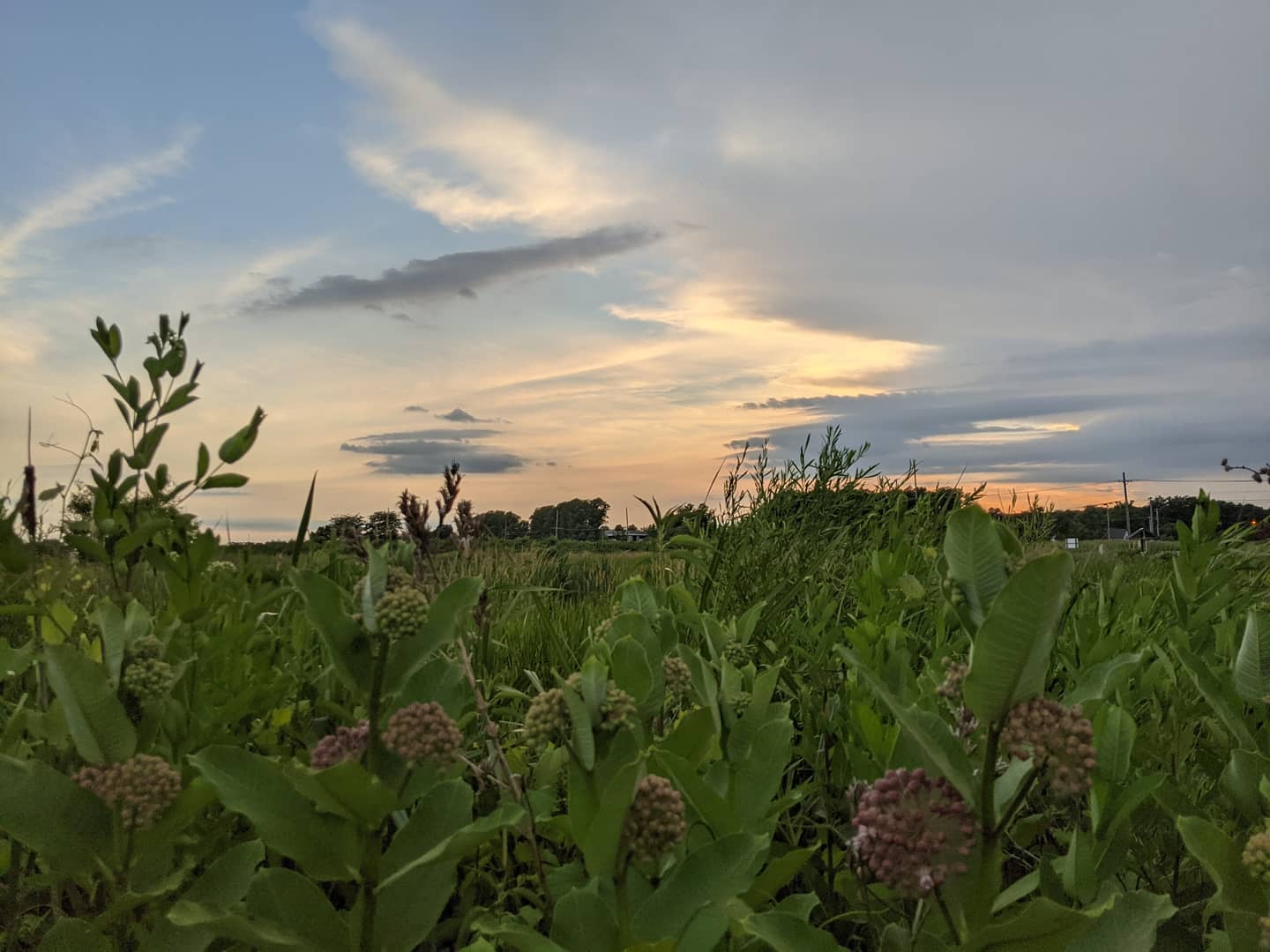
What kind of impact has the global pandemic had on LRWP, and how has the organization pivoted or gotten innovative in response?
The global pandemic has not stopped our wetland restorations from providing much-needed refuge, food, and water for wildlife, including animals that are imperiled such as the Blandings turtle, northern long-eared bat, and the northern leopard frog.
Our wetlands also have stored millions of gallons of floodwater during every major rain event protecting homes and businesses from flooding. Also, our wetlands provided cleaner water for the St. Marys River and the Wabash River.
Luckily, our volunteers were willing to still help with the care of our restorations by removing invasive species, gathering seeds, growing seeds, and planting native plants into our restorations. Many of our meetings and events went virtual and we developed great partnerships with the Allen County Public Library, MLK Montessori School, and others that sought ways to bring a wetland experience to their audiences. However, the global pandemic did have a major impact on the number of field trips and community members we could serve.
Could you share a standout story or two that really illustrates the impact LRWP and/or its programs has had on the wetlands (animals, land, overall environment)?
There's nothing like the spark in visitors’ eyes when they sow a seed, see a Monarch caterpillar munching on some milkweed, or spot a Bald Eagle soaring over the wetland waters. On average, LRWP reaches about 10,000 people each year with free wetland education programs. Every program gets people out here experiencing the wetland for themselves, which allows them to see its beauty and importance.
Wetlands are an incredibly valuable ecosystem for people, plants, and animals. Since Eagle Marsh was acquired 16 years ago, it has gone from a cornfield with one kind of plant, to an incredibly biodiverse wetland filled with hundreds of different species of plants and animals.

Our wetland restoration not only supports so much wildlife but also helps clean water and mitigate flooding in Allen County. This is so important for our neighboring businesses and homes. The restoration also provides
an incredible opportunity for our visitors to enjoy native plants and wildlife every day!
Through the help of our visitors and volunteers, we are able to give away hundreds of native plants every year. When visitors participate in a free wetland education program, they participate in a stewardship activity that helps us continue our ongoing wetland restoration efforts at Eagle Marsh. This also helps spread native plants throughout our community, which supports important pollinators all over. Without fail, multiple people always say how beautiful their plants look and how grateful they are for the wildlife they bring to wherever they have planted them. We are grateful for them, too!
Are there other local non-profit organizations that LRWP works/partners with to enhance their programs?
We partner with local schools and The Carriage House and utilize their greenhouses to help grow native plants that are shared with the community and used in our restoration projects. For the past two years, we have collaborated with ACRES, LC Nature Park, Allen County Parks, Fort Wayne Parks and Recreation, Indiana Native Plant Society, and Indiana Department of Natural Resources to coordinate local “Weed Wrangle” events that focus on teaching the public on why they should remove invasive plants, and how they can do so at our preserves and at home.
We partner with ICAN and Easter Seals Arc to host volunteer opportunities where their participants can help grow native plants in our Seed to Marsh program, a win-win partnership! We also team up with Fox Island to collaborate on bat research, and they host a table at Monarch Festival every year to demonstrate the community science project of tagging and releasing Monarch butterflies!
Are there opportunities for community members to volunteer at LRWP? What do those opportunities entail and how can those interested learn more?
Absolutely! LRWP runs on volunteer power, and we couldn’t complete our mission without this community. There are many ways to volunteer, including participating in community science projects, assisting with our free education programs, completing office projects, growing native plants through our Seed to Marsh program, and every aspect of maintaining our properties-from mowing to removing invasives to trash pick-up.
You can find our volunteer application on our website, or come to our Volunteer Kickoff event Saturday, April 9, 2022, from 9-10AM, followed by a volunteer opportunity at our Annual Spring Clean-Up from 10AM-12PM. Families are welcome!
In what other ways can community members support LRWP—be it through monetary donations, material donations, education, etc.? Do you have an itemized wish list of any kind or utilize options like AmazonSmile to raise funds?
Donations are always helpful, no matter how big or small, they make a big impact! Just $20 provides a free educational program to a child and $250 provides stewardship of one acre of our preserves.
You can find more information on how to donate on our donation page. We are a registered non-profit organization for AmazonSmile and Kroger Community Rewards. Easy ways to help give back to your community just by doing your regular shopping.
We also have an Amazon Wishlist if you want to surprise us with an item or two that would greatly benefit our stewardship of the wetlands, educational programs and provide tools for volunteers! Click here to view the list!
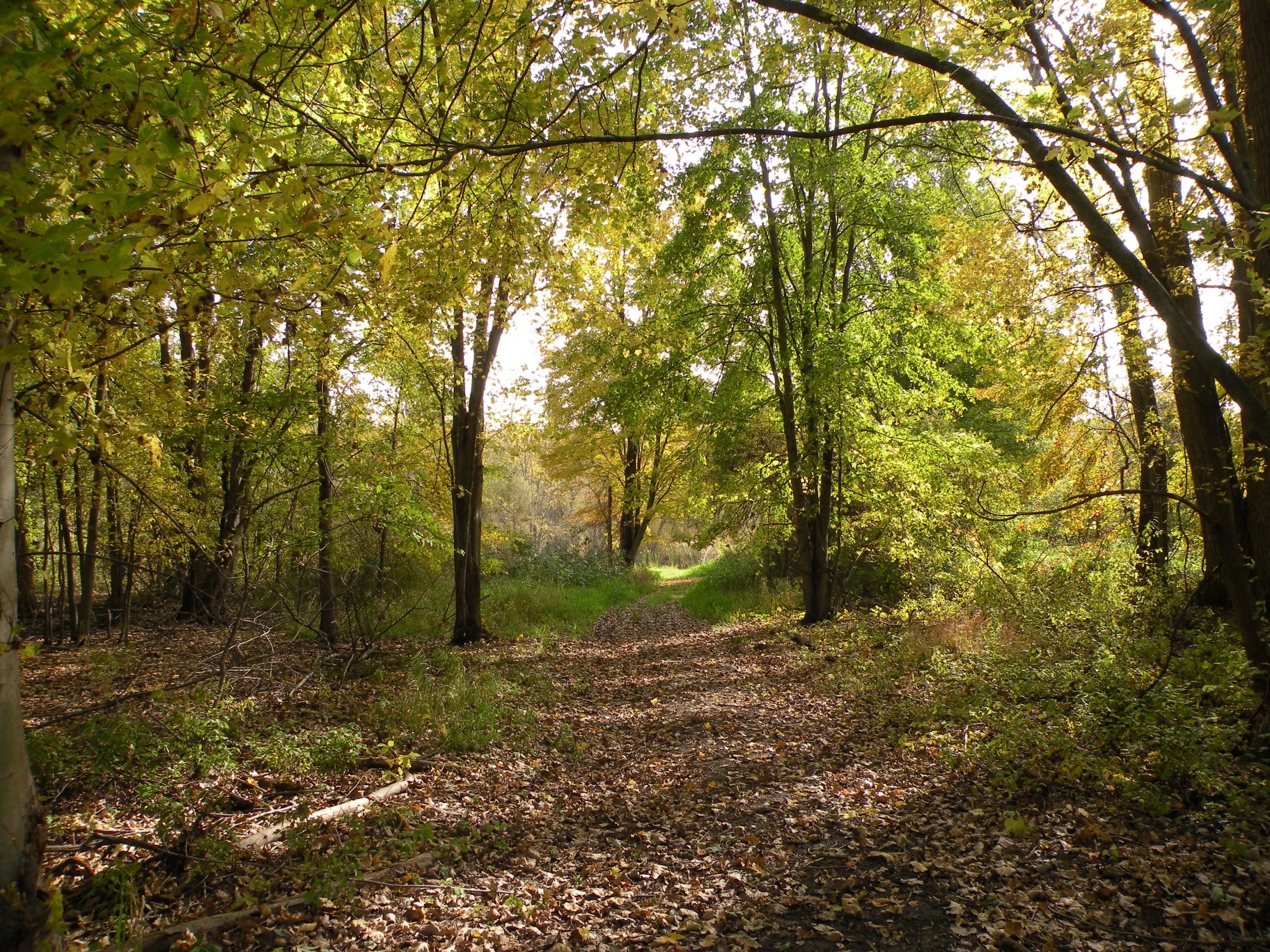
Are there any upcoming LRWP
events and/or fundraisers in 2022 you’d like to share about?
Save the date! Sunday, April 24, will be a day of celebration and the official Earth Day Fort Wayne event. The event will take place at Eagle Marsh from 1-5 PM. We plan to have educational hands-on activities for the whole family, speakers, workshops, vendors, food trucks and so much more! We will also premier our video series that tells the story and history of the historic Little River! This is a day to bring our community together and have our attendees walk away from this event knowing a few more things than they knew before on ways to protect our native wildlife and their habitat.
Where can our readers learn more about LRWP and how can they reach out to you to learn more or get involved?
You can learn more about us on our website and to get involved, visit our volunteer page!
Interested in featuring your non-profit on our website and on 97.3WMEE’s A Voice for the Good? Text "VOICE" to 46862! Please note that this may lead you to incur standard text messaging rates or other applicable charges consistent with your wireless carrier/mobile phone plan.
